
I recently had the pleasure to speak with two of my favourite rappers, Masta Ace and Edo G., about their upcoming collaboration album, A&E. Ace and Edo spoke about hip-hop’s generation gap, how they’ve changed over the years and their opinions on Blueprint 3. It took a bit for Ace to join the conversation, so the first few questions are me talking to Edo.
ML: What’s the difference between working in a group dynamic and working as a solo artist?
EG: We’ve done the group thing before and I’m comfortable in the setting. It’s a little easier working with Ace because we’ve experienced a lot of the same things in the business. So we can really relate to each other on certain things. There’s no complications, we just do it organically. It’s less rhymes, you know? Less work. [laughs] With [Special Teamz], those guys aren’t that much younger than me. Just younger in the game. They were a little more unknown at the time, when we started. A lot of the earlier stuff with those guys, I was taking on the full weight of just using my connections to make stuff happen.
[A&E] was a lot easier because we had a whole team. Ace’s people, my people, combined. It was a smooth transition. We knew what direction we wanted to go with, we got signed.ML: What does it mean for someone who’s been representing your city for so long to reach out to these younger cats?
EG: With the Special Teamz, it was something me and [Teamz member] Jaysaun had been working with for a while. We did two other groups that never came out. Special Teamz was originally called The Last Word, it had another guy. Then me, him, and Krumbsnatcha did a whole album which never came out. We ended up enlisting Slaine, we came across someone who knew him. We said, Let’s try something different. We tried albums with two other artists that didn’t work out. Even though we came up with great material, we couldn’t all see on the same wavelength. So we tried Slaine, changed the name and that clicked from the first time we went to the studio. It was something that was in the works and it just took a while to find the right combination. I think it worked out well.
It’s tough to find the chemistry because you’re going to be with these people for months, if not years recording and touring and doing stuff together.
ML: After Roxbury 02119 came out in 1993, there was a really long gap – you were doing guest appearances and the like- but you didn’t put out another album until the 2000s (The Truth Hurts).
EG: That period…That was me finding myself, and going through transitions with different labels. It was me jumping on a bunch of different projects. A lot of compilation albums, a lot of features, so people could be like, “Oh, I heard that. That was dope.” I was doing these so I could get to the point of putting out another album.
ML: What was it like working on My Own Worst Enemy with Pete Rock (who produced 7 of the 10 tracks), as opposed to A&E and Stereotypez, where you used diverse cast of producers?
EG: It was good. It was tough…it took a couple years to get it done, with Pete living in New York and me living in Boston. At the time we were recording it, ’02 to ’03, the technology wasn’t as advanced as it is now. He wasn’t sending me mp3s online. Now it could get done much quicker, but we were literally going to New York and listening to beats. Every few weeks, going to his house and picking out beats then recording. It was a back and forth project. [Most important] was making sure the vibe was right. You can go and pick 10 beats from Pete Rock but I wanted to get the best stuff I could possibly get from him. It was a good experience, man.
ML: Besides Special Teamz, what other Boston emcees are you checking for right now?
Masspike Miles, Dre Robinson, Akrobatik, Esoteric. This kid Boycott Blues is really really talented.
[Ace joins the conversation]
ML: What does it mean to be a rapper past the age of 30 in a genre that fetishizes youth so strongly?
MA: For me, I definitely understand the obsession with youth but I think it’s something hip-hop has to get over. It’s new territory, rappers turning 40 and plus. People don’t know how to handle or deal with it. What they’ve been used to doing is just ignoring dudes. In the past, the rappers from the 70s that got old, they just kinda disappeared because they weren’t part of the new industry. Which was high record sales, big budget videos. They missed that whole era. A lot of them disappeared because they weren’t that visible. They didn’t come up in the video era. People knew their records but they didn’t have that visual to go with it. Edo and I came up in the video era where people know what we look like. We’ve had videos all over the television. For the first time, we’re starting to reach that age where people want us to disappear. We refuse to crawl under a rock. We feel like we’ve still got something to say.
EG: It’s uncharted territory. I think a lot of the people that grew up listening to our music still have a desire to listen to hip-hop, but because of this obsession with youth, there’s a lot of young cats, young stuff on the radio. [Older listeners] don’t have any desire to listen to that. We’re kinda opening up a new path for cats who are older and also bringing in the younger generation to what we’re doing. It’s really building a bridge. I think it’s going to last a long time with a lot of artists. There’s a need for people our age who still want to listen to hip-hop.
ML: Is the east coast “boom bap” sound now the sound of an older generation? Raekwon’s album sold well but I think it’s the exception to the rule.
EG: I don’t think it’s a revival. I don’t think it went anywhere. I think the fans have been there. You got the tours, Rock The Bells. There’s a bunch of venues and people who still support it. But right now the South is really dominating commercial airwaves. That’s the sound of commercial music at this particular time. Every music has its go-round. Right now it’s the South’s turn. You never know what it’s going to look like. Next wave might be electronic hip-hop. A lot of trends in music going, you got that Baltimore sound, which is really fast and there’s a lot of mash-ups. Vegas is breaking a lot of records right now, a lot of the hits come out of Vegas clubs. It’s a lot of dance stuff. For [East Coast rap], I don’t think it’s not there. You still get that love on mix shows and certain commercial radios, depending on the market. Raekwon’s album is one of the best albums out this year. His, ours, you know what I’m saying? [laughs] KRS, [Buckshot]… a lot of good East Coast music.
ML: What did you think of Blueprint 3?
EG: That’s kinda the East Coast revival, if you ask me. The beats are boom bap beats, they’re traditional. Kanye did a lot of it, and you know where he got his sound from.
MA: I had kind of a different take. I don’t think it’s a wack album. I think it wasn’t what I wanted. You talk about Jay-Z and boom bap…I wanted “Hard Knock Life”, “Where I’m From”. I wanted those type of records. He was trying to be real experimental on this album. The beats and the hooks sounded experimental for him. [Jay] said in interviews that he was trying to take hip-hop somewhere and that’s cool.
EG: If you listen to the verses, [Jay] said, “If you want to hear the old stuff, listen to the old albums.”
MA: [laughs] That’s what I do.
ML: Ace, what newer artists are you checking for?
MA: I like Drake. I’m listening to dudes that’s been doing it for a while, the Raekwon album is one I’m playing. I like N.E.R.D. a lot. Sean Price is dope as hell to me but he’s not new. I like Torae.
ML: Sean Price is a rapper who’s changed over the years. If you go from early Heltah Skeltah to what he sounds like now, he just kept getting better. How did you adapt your flow and rapping over the years?
MA: I love Sean for that. My third album [Sittin’ On Chrome] was definitely my attempt to dumb it down a bit. I felt like I was going over people’s heads with some of my attempts to be super lyrical. Sittin’ On Chrome came out in the era of The Chronic and Snoop Dogg’s albums. Dudes were rhyming real simple but had dope music. I dumbed it down for that album and the result wasn’t what I wanted it to be. From that point forward, I decided I wasn’t going to dumb down nothing for nobody. I’m just doing the music I want to do. If you like it, rock with it. If you don’t, buy Soulja Boy.
EG: When I first got my record deal, I was 19. You go through different experiences and that’s what you talk about. You talk about what’s going in your life and what’s going on around you. It’s maturity, seeing different things and experiencing different things. For me as an emcee and as a writer, I talk about my experiences and the experiences of people close to me. It comes down to maturing in music. [On the early records], I’m younger, I’m 20, 21. I’m wilding out, doing all kinds of crazy things that I don’t necessarily do anymore. I’m married with kids. I listen to the old stuff, I get a kick out of it. Because that’s who I was and that’s what I was going through.
ML: What current producers are you checking for?
MA: M-phazes is a new dude who’s super talented. He’s Australian and I’ve been listening to his beats for the last 3 years. I got put onto him through Wordsworth and Strickland, they found him on the internet. Edo got in touch with him to do some tracks for the album. He did “Little Young” and two other tracks on the album.
ML: What can we expect from A&E?
MA: It’s definitely a journey into the boom bap. It’s also a journey into uncharted waters. We’re two artists with long storied careers who decided to join forces and do a cohesive album together.
ML: Ace, this album is also the first album you’ve done in a while without a narrative – Disposable Arts, A Long Hot Summer and The Show all have a story that joins them together. How do you approach doing an album of unconnected tracks versus an album with a storyline?
MA: It’s not really different. It’s kind of the same thing. There was some debate about whether or not we were going to have skits or interludes on there. When the album was completed and finished, I had an idea to make it interesting. For me it was kinda the same thing, the same approach, the same kinda thought process and the same studio process. Just like we did for the last couple of albums.
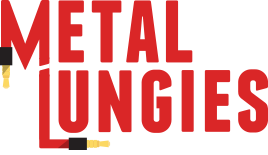
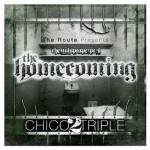
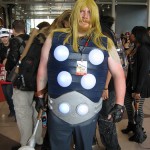
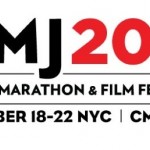
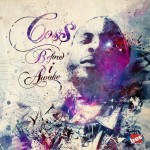
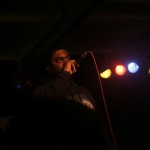








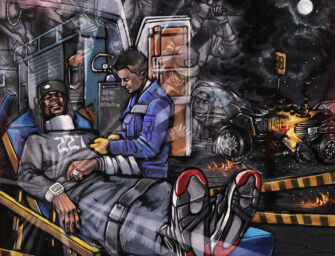
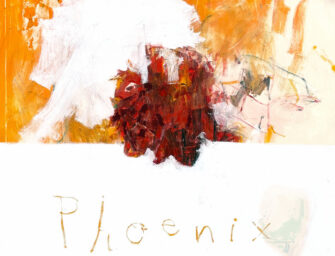
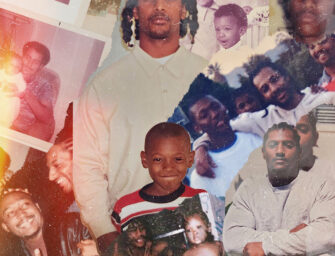
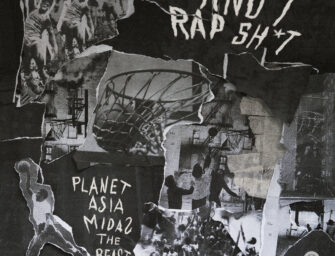
[…] Lungies hooked up with Ace and Edo for a Q&A session. Read it here. […]